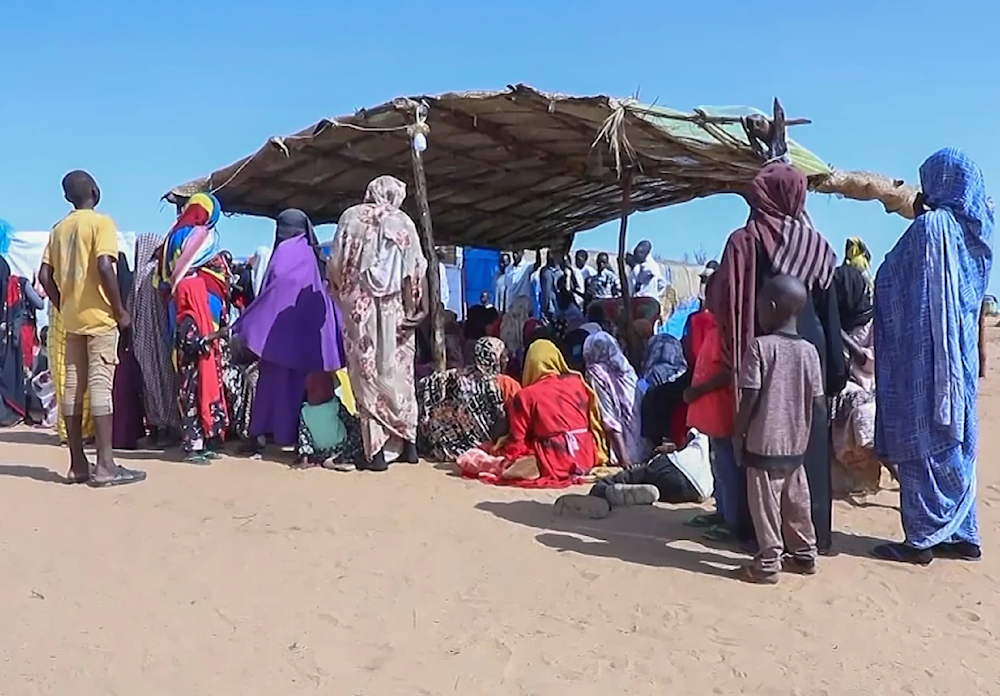Chad faces hunger crisis as food aid money dries up
As worldwide demand for aid grows, the World Food Programme warns that it will stop helping to feed 1.4 million people, including Darfur refugees.
-

Sudanese refugees gather outside a field hospital in Acre Chad on August 15, 2023 (AP)
The UN World Food Programme (WFP) has warned that food aid for 1.4 million people in Chad risks a "looming halt" due to a lack of funds, even as the nation is seeing an inflow of refugees from Sudan's Darfur area.
Beginning in December, WFP will halt food distribution to refugees in Nigeria, Central African Republic, and Cameroon due to funding constraints and rising urgent demands.
The restriction will be extended to Chad in January, a "brutal" move that would harm "new arrivals from Sudan who will not receive food as they flee across the border," according to a WFP statement.
Since the conflict in Sudan began in April, about 500,000 Sudanese have crossed into Chad. According to a recent study, more than 90% of these migrants do not have enough to eat.
The battle has claimed hundreds of lives according to the UN, and the Red Cross has warned that continued conflicts run the risk of destroying the nation's healthcare system.
With more than 2.2 million internally displaced Sudanese people and nearly 700,000 others who had to flee the country as a whole, the figures obtained back then by the IOM through its Displacement Tracking Matrix (DTM) revealed that the conflict displaced close to three million people.
Pierre Honnorat, WFP’s country director for Chad expressed that the forgotten crisis has "metastasized as the world’s eyes are on other emergencies,” emphasizing that "more Darfuris have fled to Chad in the last six months than in the preceding 20 years."
Hundreds of thousands of Chadians are going hungry as a result of the climatic catastrophe, inter-communal conflicts, and rising food and fuel prices. Honnorat said that halting food aid will ruin years of progress to address hunger and "pave the way for nutrition crises, instability crises, and displacement crises."
WFP requires $185 million to continue feeding people in Chad for another six months. The organization is facing a global financing crisis, which has prompted it to reduce rations and scale back activities in many nations.
Its financing is dwindling as the need for worldwide assistance grows. According to Development Initiatives, a data consultant, the number of people in need of humanitarian aid would have increased by over a third by 2022, to 407 million, a record high.

 3 Min Read
3 Min Read








